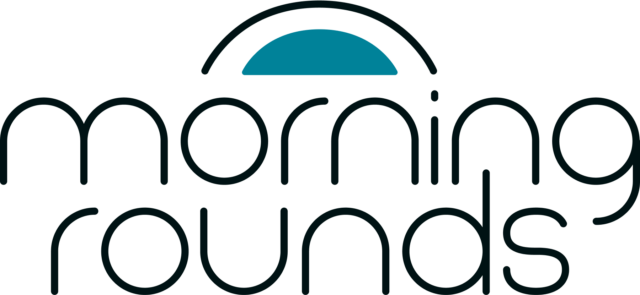
Good morning! What would you buy if you earned $305 million in one year? Maybe I’d have a different color KitchenAid mixer for every season.
Bird flu: More questions than answers as more health worker sickness is revealed
An investigation into a still unexplained human case of bird flu in Missouri has turned up four more health care workers who developed mild respiratory symptoms after caring for the patient, the CDC reported on Friday.
It’s the third time the state has revealed that health care workers came down with flu-like illness after treating the patient, who was hospitalized on Aug. 22. The fact that this keeps happening is raising concerns about the rigor of the investigation, STAT’s Helen Branswell reports.
None of these people were tested at the time they were sick, so we don’t know if they actually had bird flu. But the fact that they got sick at all raises the specter of person-to-person spread.
Other things we still don’t know: Where the case occurred or how long the patient (who has since recovered) was in the hospital. The CDC cannot send investigators to a state unless its help is requested, and so far, that hasn’t happened. Read more from Helen.
Guess how much money health care CEOs made last year
It’s less than the year before, but it’s still an incomprehensible amount of money for people like me and, maybe, you. Even during a year when stocks tumbled and some company leaders lost their bonuses, the median industry CEO made $4.1 million in 2023 — 51 times the median American household income. (The “average” CEO made $11 million. Math, amirite!)
Moderna’s Stéphane Bancel topped the list again, earning more than $305 million last year — enough to buy multiple private islands. If that makes you mad, you aren’t alone. “Health care is about caring for people … Someone making millions of dollars off of people’s ill health feels like it’s a moral disconnect,” said bioethicist and oncologist Ezekiel Emanuel.
Read more in STAT’s annual analysis on executive compensation — it’s particularly unique because of how our reporters account for stock awards and options to create a more accurate representation of someone’s taxable income.
Disability advocates challenge Canada’s assisted suicide law
Disability rights advocates in Canada have filed legal action with the Ontario Supreme Court asking it to strike down part of the county’s medical assistance in dying law. The law currently allows a person with a serious and incurable illness to seek euthanasia or assisted suicide even if their natural death is “not reasonably foreseeable.” The advocates argue that this provision and a collapsing social support network have pushed disabled people to premature deaths.
The controversial policy, once seen as providing dignity in death, is now at a crossroads. The country’s Parliament postponed a planned expansion of it earlier this year. Medically assisted dying is also now Canada’s fifth leading cause of death, along with cerebrovascular diseases.
“This law also sends a devastating message that life with a disability is a fate worse than death. It’s time to put an end to helping people with disabilities commit suicide and start supporting them to live,” said Krista Carr, Inclusion Canada Executive Vice President.
— Timmy Broderick
Sickle cell community scrambles for a safe plan after drug is pulled from the market
Last week, Pfizer announced it was pulling its drug for sickle cell disease off the market, presenting a dilemma for doctors and patients. Prescribing the medication, Oxbryta, could put patients at risk: It was pulled because further research showed that its benefits no longer outweighed the risk of pain crises or death. But based on anecdotal reports over the years from patients who stopped taking the drug, abruptly cutting people off could bring its own set of dangerous possibilities.
“I feel like a test dummy right now,” said Aldoris M. Bate, a 34-year-old financial analyst in Baltimore, whose sickle cell doctor called her with tapering advice. “I’m second-guessing myself if I’m going to do any more new-off-the-FDA-shelf medicines.”
Read more from STAT’s Eric Boodman about what patients have gone through, and what rocky journeys may lay ahead.
Why it matters that 988 will route calls by location, not zip code
Calls to the national suicide and crisis hotline 988 will now be routed to local call centers based on the caller’s location rather than their phone’s area code, HHS announced last week. Verizon and T-Mobile have already begun routing calls this way voluntarily, and AT&T is expected to do so in the future. The FCC will vote next month on rules that would require all providers to follow suit.
To get a better understanding of the impact of the change, I sent some questions to Hannah Wesolowski, the chief advocacy officer at the National Alliance on Mental Illness. (The interview been edited for length and clarity.)
What’s the benefit of georouting calls to 988 vs. routing by area code?
Ninety-seven percent of Americans own a cell phone – which may not match where they are during a crisis. As a result, some help seekers’ calls are routed to a call center that is not close to their physical location. This means the system isn’t always able to address the immediate needs of help seekers in crisis – connecting them to mobile crisis response, housing or food supports, local mental health providers or other resources.
A lot of states are still sharing a state-specific 10-digit number for crises, which defeats the “easy-to-remember” aspect of 988. By routing calls to the nearest call center, we can get everyone on board with promoting “9-8-8” and help get more familiar with this resource.
The lack of georouting was one of the biggest complaints I heard from 988 operators when the new number launched. What are the next most important improvements to make to the line?
First, georouting is not done. We still need the FCC to vote to require it across all carriers, and there will be an implementation period for carriers who haven’t yet started the process. Also: Staffing and training are major challenges. At the end of the day, if we don’t have the workforce to provide care to people in a crisis, a crisis system doesn’t have the reach we want and need. We need to identify workforce development and retention strategies to get more crisis counselors.
But it is also not just about 988 – 988 is one leg of a system that also needs someone to respond, like mobile crisis response, and a safe place to be, like crisis stabilization options, for anyone who needs more help than can be provided over the phone. We’ve made great progress with 988, but we still have a lot to do on the other parts of the continuum to help people with more intensive needs.
Read more about 988 and what lies ahead.
Marburg virus detected in Rwanda
The East African country of Rwanda is in the grips of its first detected Marburg outbreak, and although its confirmation was only announced on Friday, it is already clear this could be a large and challenging event to contain. The deadly virus has been transmitting among staff in at least two hospitals in the capital city, Kigali, home to 1.7 million people and an airport with direct flights to more than 20 countries in Africa, the Middle East, and Europe. Cases have been detected in seven of the country’s 30 health districts.
Marburg is a cousin virus of Ebola. But where Ebola can cause massive outbreaks, Marburg outbreaks have historically been small, burning themselves out after a handful of cases. This event — This event — with 26 confirmed cases and eight deaths so far — is already in the top five of Marburg outbreaks, and the numbers are expected to grow as disease investigators search for possible cases outside of hospitals. The outbreak comes as several of Rwanda’s neighbors are battling spread of mpox. There are no licensed Marburg vaccines or drugs, though some are in development.
— Helen Branswell
What we’re reading
-
Steward Health Care CEO Ralph de la Torre will resign, STAT
-
Warren Hern, America’s abortion doctor, New Yorker
- The fraught history of the pelvic exam, STAT
- Space travel is dangerous. Could genetic testing and gene editing make it safer? MIT Technology Review
- 5 things to know from this week’s big report on cannabis, NPR






